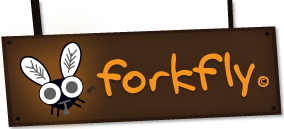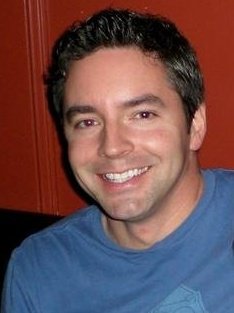Tuesday, July 5, 2011
Interview with Paul Wagner, Forkfly

The online, daily deals and offers market is a very competitive one, with major companies like Groupon and LivingSocial--plus countless others--looking to occupy the space. Portland-based Forkfly (www.forkfly.com) is looking to take a different angle on the market, helping to enable local publishers to create their own, deal sites. We spoke with founder Paul Wagner about the company.
First, for folks who haven't used your app, what is Forkfly?

Paul Wagner: For the consumer, it's all about local deals with great local merchants. It's a pretty straight forward play on that end. It get a bit more complex on the other two thirds of the site, for the merchants and the publishers.
What do you offer for them?
Paul Wagner: On the publisher and merchant side, we have integrated a suite of tools to not just manage social couponing, social media, but a whole suite of things to manage the stuff internally. They can manage their digital spend with local publishers, manage print, and more. It's basically a suite of useful applications which they can manage themselves. It stems, in a large part, from our work with publishers. If you've ever read Groupon's financials, you'll see they are spending a half a billion on marketing, and have 5000 salespeople. It's pretty spectacular, really. For us, we realize that our media partners are wanting to stay relevant in both print and digital. They have the feet on the street, and the local trust, so they deploy Forkfly themselves. That allows us to expand not just into major markets, but also provides us with market differentiation from Groupon and LivingSocial, allowing us to gain traction.
Those publishers are mostly newspaper publishers? Paul Wagner: We work primarily with print, and have seven sites deployed and another twenty deploying. When I'm saying deploying, there are those who aren't showing up on the site until they are ready to go live. We're in talks with another sixty properties, including working with radio and TV stations, who are also interested in deploying the technology. The nice thing about our platform for publishers, is there is one app which works anywhere in the country. You might start using the app in Charleston, South California, with the local city paper. But, if you visit San Francisco, we can also show them deals from that local area, too. In that way, we are helping publishers become a part of a network, because they don't want to be a little island fighting for survival.
How did you settle on this market?
Paul Wagner: We were one of the first coupon apps on the App store. We had originally taken a very traditional approach. I'd owned a restaurant as a side project, and had some frustration with CitySearch, which was about our only digital spend option. I ended up designing the interface, and had it built in Argentina. I flew down there, worked with a local development team, and we deployed it in 2008. I then realized very quickly that building a large team of sales people and selling to local merchants in Portland was wonderful, but there was no way we'd be able to ever expand beyond Portland, because it was too expensive. We had a low price point, and there was just no scalability in the original model. To make a long story short, someone in the publishing space approached me, and told me I had an interesting product, and if I had considered deploying it with newspapers. It was an interesting proposition, so we completely scrapped our code, rebuilt it to not just be a couponing tool for merchants, but also made it a place where businesses could manage their media spend through local publishers. We didn't have to spend on marketing, which was all done by our media partners. We left the sales efforts to our media partners, and focused on developing the technology.
We'd guess that local partners make it easier for you to differentiate?
Paul Wagner: That's exactly right. It's funny, but recently Groupon Now deployed in the Bay Area, and deployed in Portland. I received an email yesterday from Groupon, claiming that they had over 200 Portland deals, which was an outright fabrication. When I went to Groupon Now, I found 30 at most. In Portland alone, we have 195 active deals right now. Plus, consumers don' t have to pay a time to take advantage of our service. They can just hold up a phone to get the offer. I do think that the more players that get into this space, the better it is for us. Publishers understand they have to go out and do this, or they risk losing everything. So, the more noise the better, it's a good space to be in.
Finally, what's the next big thing for you?
Paul Wagner: We're expanding rapidly, and what we've realizes is that, although the larger markets are performing very well for us, what fun is working with small, regional publishers. Those are publications with less than 15,000 people in a rural market, which is a horribly underserved market. For us, it's been huge working with those publishing partners in those regions, because the acceptance has been absolutely tremendous. There is no noise from Groupon, LivingSocial, or any other daily deal platform in those markets. Those launches end up wildly successful for us and our publishing partners.
Thanks!